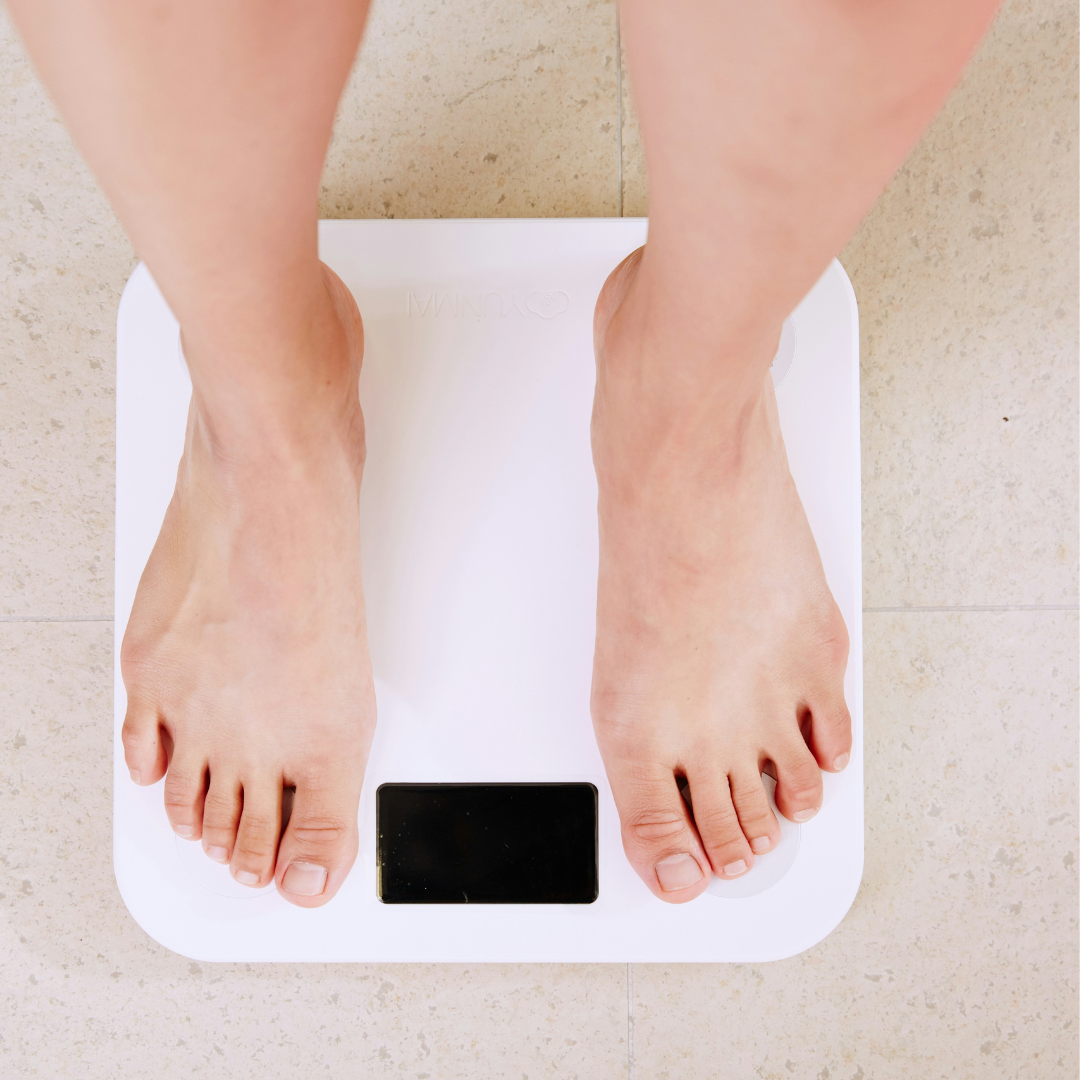
Menopause marks a significant transition and is accompanied by a host of physical and emotional changes. One common concern during this period is weight gain, which affects many women.
This blog will help you understand why weight gain occurs, how you can help address and manage it effectively we’ve even included a fun, tasty recipe to ensure you’re not missing out on deliciousness whilst feeling fuller for longer.
Why Do We Gain Weight During Menopause?
Several factors contribute to weight gain during menopause, including hormonal changes, lifestyle shifts, and metabolic changes. Here’s a closer look at each of these factors:
Hormonal Changes
The most significant factor in menopausal weight gain is the hormonal fluctuation associated with decreased eostrogen levels. Women naturally gain weight as they age and their metabolic rate slows. Oestrogen influences where your body stores fat, and as its levels decline, there’s a tendency for fat to shift from the hips and thighs to the abdominal area. This can lead to an increase in visceral fat, which is the fat stored around the organs which can have more serious health implications than subcutaneous fat (the fat under the skin).
Additionally, lower oestrogen levels can impact the regulation of appetite and hunger. For instance, a dip in oestrogen can lead to increased cravings for high-calorie, high-carb foods, which can contribute to weight gain.
Metabolic Changes
As women age, their metabolism naturally slows down. This is partly due to a decrease in muscle mass, which burns more calories at rest than fat. With less muscle mass, the body burns fewer calories, making weight gain more likely. The combination of hormonal changes and reduced metabolic rate means that even if you maintain the same diet and exercise routine, you may still gain weight.
Bodily Changes
Menopause often brings a shift in body composition. The loss of muscle mass and the increase in fat mass are common. This change in body composition may also affect how your body processes and stores energy (calories), making it easier to gain weight.
Lifestyle and Behavioural Changes
The transition into menopause can be a time of significant lifestyle changes. Many women experience stress, anxiety, or depression during this period, which can lead to emotional eating or a decrease in physical activity. In fact, the NHS indicates that many women are at an increased risk of developing depression.
A study by Cardiff University estimates that as many as 70% of women develop neurological and psychiatric symptoms even before menopause (known as perimenopause; the years before the onset of menopause). If you are concerned that your mood has dipped to abnormally low levels, please reach out for help with your local healthcare provider, they may be able to prescribe you medication that could help you feel more like yourself.
Additionally, disrupted sleep patterns often associated with menopause can affect weight management. Poor sleep can impact the hormones that regulate hunger and appetite, leading to increased calorie intake and weight gain.
Managing Weight During Menopause
Understanding the factors contributing to weight gain is the first step toward managing it. Here are some practical strategies to help you maintain a healthy weight during menopause:
Adopt a Balanced Diet
A well-balanced diet is crucial for weight management. Focus on:
- Whole Foods: Incorporate plenty of fruits, vegetables, whole grains, and lean proteins into your diet.
- Healthy Fats: Opt for sources of healthy fats like avocados, nuts, and olive oil.
- Reduced Sugar and Processed Foods: Minimise the intake of sugary snacks and processed foods, which can contribute to weight gain and exacerbate menopausal symptoms.
- Hydration: Drink plenty of water to support metabolism and help manage appetite.
Here’s an idea for a healthy (yet tasty!) snack we’ve coined the NIXI nice nibbles:
You will need:
- 70% dark chocolate.
- Pistachio nuts (crushed).
- Dried blueberries (full of hormone-balancing antioxidants that reduce bodily inflammation).
- Chia seeds (They’re full of Omega 3!)
- A fridge! (to set your NIXI nibbles)
- Melt your chocolate over a low, steady heat (or in the microwave, with care) and then crush your pistachios with a rolling pin in a large bowl
- Add your dried blueberries and chia seeds then mix into your melted dark chocolate.
- Grab a large baking tray covered in parchment paper (to avoid it sticking to the tray) then pop it in the freezer. Tada! Yummy, healthy, and sure to tide you through those hungry 11am munchies.
Increase Physical Activity
Regular exercise is key to managing weight and improving overall health during menopause. Aim for a combination of:
- Cardiovascular Exercise: Activities like walking, swimming, or cycling help burn calories and improve cardiovascular health.
- Strength Training: Building muscle mass through strength training exercises can help boost metabolism and counteract muscle loss. Read all about how strength training can help you here.
- Flexibility and Balance Exercises: Yoga and Pilates can improve flexibility, balance, and overall well-being, which is important as you age.
Manage Stress
Stress can contribute to weight gain and exacerbate many menopausal symptoms. Incorporate stress-reducing practices such as:
- Mindfulness and Meditation: Techniques to help manage stress and improve mental well-being.
- Regular Exercise: Physical activity can also be a great way to reduce stress and improve mood.
- Adequate Sleep: Prioritise good sleep hygiene to improve sleep quality and support weight management.
Seek Professional Guidance
If you’re struggling with weight management during menopause, consider consulting a healthcare provider or a registered dietitian. They can offer personalised advice, help you develop a tailored plan, and address any underlying health issues that might be contributing to weight gain.
Weight gain during menopause is a common experience, but it’s also an opportunity to focus on your overall health and well-being. By understanding the factors at play and implementing practical strategies, you can navigate this transition more comfortably. Remember, menopause is a natural phase of life! With the right approach, you can manage weight effectively while also embracing the changes and challenges that come with it.
We hope these tips can help you take a proactive approach to your health during the transition into menopause; including making mindful dietary choices, staying active, and managing stress, helping you feel more in control and confident.
